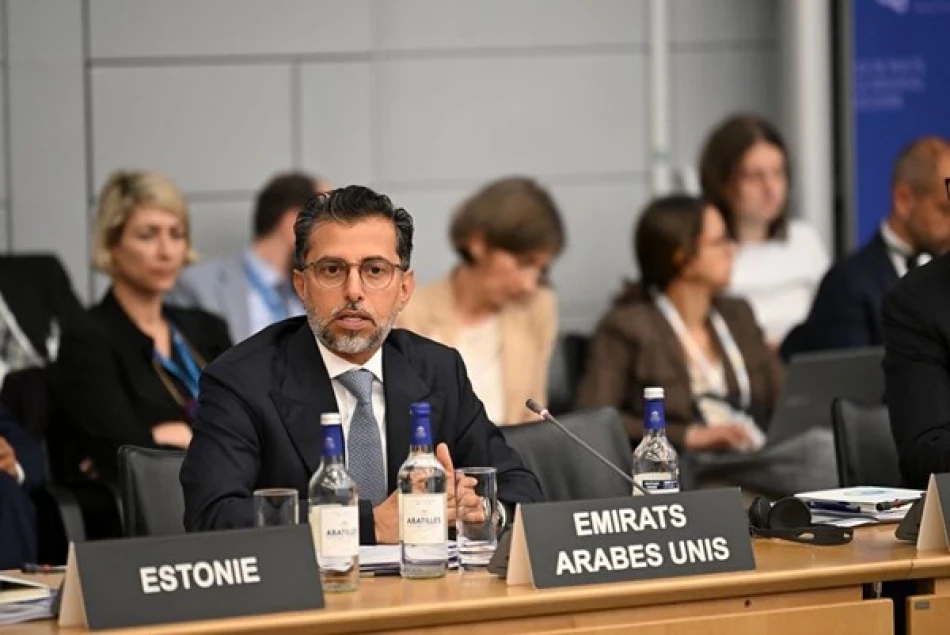
UAE Participates in Paris Conference on the Road Map for the New Nuclear Energy
UAE Positions Itself as Nuclear Energy Leader While Global Powers Seek Triple Capacity by 2050
The UAE is leveraging its successful Barakah nuclear program to champion international nuclear expansion, as energy ministers from over 30 countries gathered in Paris to map strategies for tripling global nuclear capacity by 2050. The Emirates' participation in the high-level conference signals its ambition to become a regional nuclear technology hub while addressing the sector's most pressing challenge: securing adequate financing for new projects.
Global Nuclear Renaissance Gains Momentum
The ministerial conference "Roadmap to New Nuclear Energy 2025," co-hosted by South Korea and the OECD Nuclear Energy Agency, brought together energy ministers and executives from 50 companies to tackle supply chain strengthening, workforce development, and financial resource mobilization. The gathering represents a significant shift in global energy policy, building on commitments made at COP28 in Dubai where 31 countries endorsed tripling nuclear capacity by 2050.
This ambitious target reflects growing recognition that nuclear power is essential for achieving climate goals while maintaining energy security. Unlike previous nuclear expansion efforts that focused primarily on developed nations, this roadmap encompasses emerging economies seeking reliable baseload power to support industrial growth.
UAE's Barakah Success Story Sets Regional Precedent
UAE Energy Minister Suhail Al Mazrouei positioned the country's Barakah Nuclear Power Plant as a global model during his address to the conference. The facility generates 40 terawatt-hours annually, supplying approximately 25% of the UAE's electricity needs while eliminating millions of tons of carbon emissions yearly.
Barakah's significance extends beyond its operational success—it represents the first fully operational civilian nuclear program in the Arab world, achieved through strict adherence to international safety standards. This accomplishment gives the UAE credibility when advocating for nuclear expansion in regions where the technology remains politically sensitive.
Next-Generation Nuclear Technologies in Focus
The UAE is already exploring advanced nuclear technologies, including small modular reactors (SMRs) and innovative designs for hydrogen production, industrial applications, and data centers. This forward-looking approach positions the Emirates to capitalize on the next wave of nuclear innovation, potentially becoming a regional hub for advanced reactor deployment.
Financing Emerges as Critical Bottleneck
Al Mazrouei identified financing as the primary obstacle to nuclear expansion, calling for nuclear projects to be included in sustainable finance classifications and supported by international financial institutions. This challenge is particularly acute for developing nations where nuclear projects require massive upfront capital investments with long payback periods.
The financing gap reflects broader market dynamics where renewable energy sources like solar and wind receive preferential treatment from ESG-focused investors, despite nuclear power's superior capacity factors and grid stability benefits. The UAE's call for policy reform could influence how multilateral development banks and private investors approach nuclear project financing.
Geopolitical Implications and Market Opportunities
The UAE's nuclear leadership strategy comes as global energy markets undergo fundamental restructuring. Countries seeking energy independence are reconsidering nuclear power, particularly following supply disruptions caused by geopolitical tensions. The Emirates' experience demonstrates that nations can successfully develop nuclear capabilities through international partnerships while maintaining non-proliferation commitments.
For investors and technology companies, the UAE's approach offers insights into emerging market opportunities. The country's emphasis on advanced reactor technologies and industrial applications suggests significant potential for companies developing next-generation nuclear solutions.
Regional Competition and Collaboration
The UAE's nuclear diplomacy occurs alongside similar initiatives by regional competitors. Saudi Arabia has announced plans for multiple nuclear reactors, while Egypt is constructing its first nuclear plant with Russian assistance. Rather than viewing this as competition, the UAE appears positioned to offer technical expertise and operational knowledge to neighboring countries, potentially creating a regional nuclear services industry.
The Emirates' commitment to sharing experiences with other nations, as emphasized by Al Mazrouei, suggests a collaborative approach that could accelerate regional nuclear adoption while establishing the UAE as a knowledge center for nuclear technology in the Middle East.
Most Viewed News

 Layla Al Mansoori
Layla Al Mansoori






